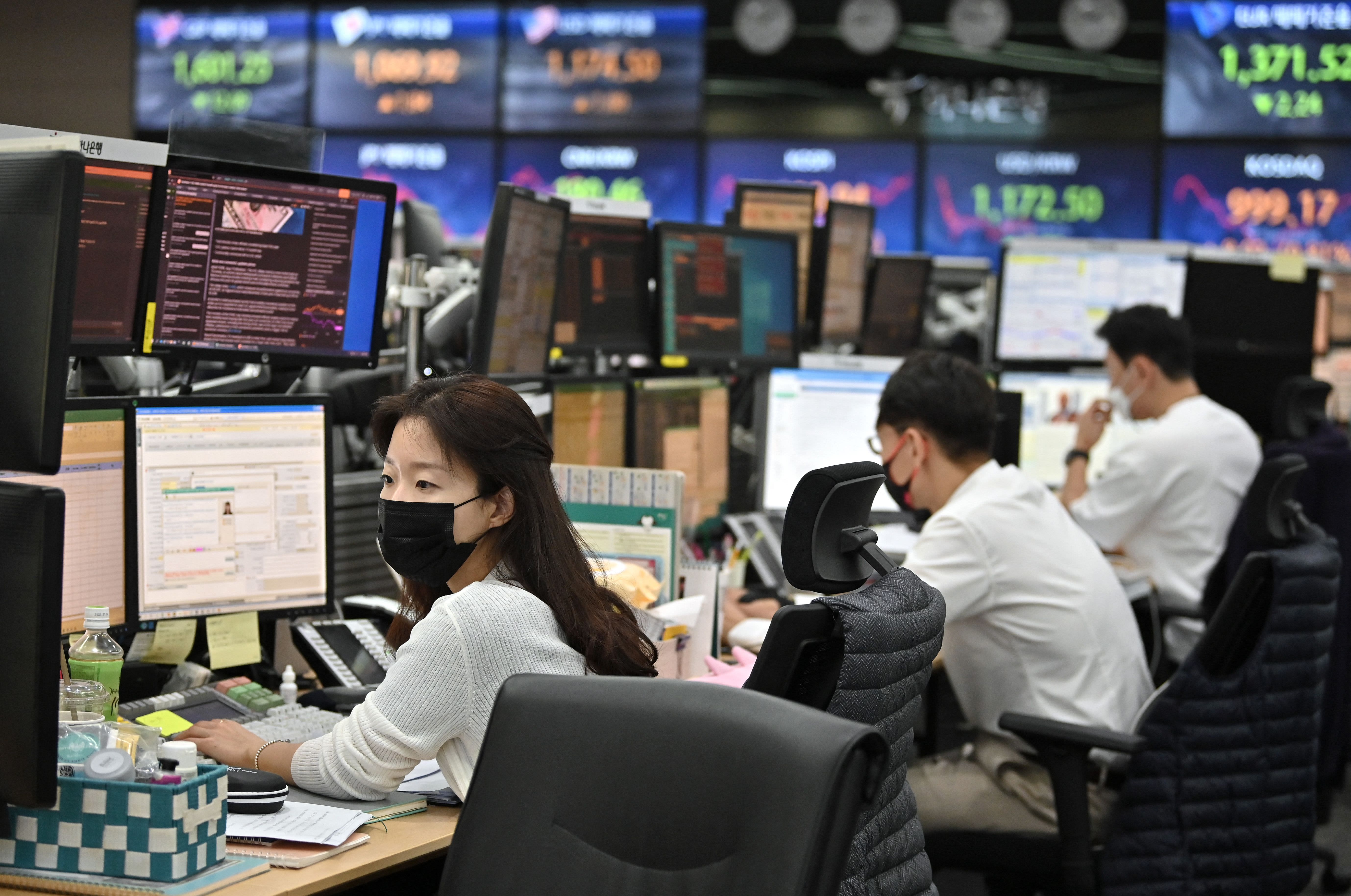
SINGAPORE — Asia-Pacific markets looked set for a lower start on Wednesday following an overnight sell-off on Wall Street.
Nikkei futures pointed to opening declines for the Japanese benchmark index at the top of the hour.
In Australia, the ASX 200 dropped 0.67% in early trade as most sectors traded lower. The heavily weighted financials subindex declined 0.96% as the country’s major bank names sold off.
“Equity markets declined while oil stocks gained overnight, as markets expect central banks will need to lift rates more quickly to control inflation,” ANZ Research analysts wrote in a Wednesday morning note.
Stateside, the Dow Jones Industrial Average lost more than 540 points after Goldman Sachs shares sold off as the investment bank missed analysts’ expectations for earnings. The S&P 500 as well as the Nasdaq Composite, which comprises technology stocks sensitive to interest rates, also declined sharply.
Currencies and oil
In the currency market, the U.S. dollar rose 0.49% to 95.726 against a basket of its peers, climbing from an earlier level around 95.129.
ANZ Research analysts said that the jump in U.S. bond yields weighed on risk appetite and provided a boost for the world’s main reserve currency.
The yield on the 10-year Treasury note topped 1.87% on Tuesday, its highest level in 2 years, after beginning the new year at around 1.5%. The 2-year rate, which reflects short-term interest rate expectations, topped 1% for the first time in two years.
The Japanese yen changed hands at 114.58 per dollar while the Australian dollar traded near flat at $0.7187.
Oil prices hit a seven-year high overnight after Yemen’s Houthi rebels claimed responsibility for a deadly attack in Abu Dhabi earlier this week, leading to fresh tensions in the region. The United Arab Emirates vowed to retaliate against them.
International benchmark Brent as well as U.S. crude futures advanced more than 1% and 2% respectively as both oil contracts notched their highest level since October 2014 earlier in the session.
“Global oil demand continues to remain resilient despite the latest surge in Covid‑19 cases from the highly‑transmissible omicron variant,” Vivek Dhar, mining and energy commodities analyst at the Commonwealth Bank of Australia, said in a morning note.
He explained that oil demand is susceptible to Covid-19, in particular to Covid-related lockdowns and restrictions, more than other commodities as around two-thirds of global oil consumption is tied to mobility.
“Fears though are fading that the omicron variant will cripple oil consumption,” he wrote, adding that jet fuel consumption, for example, continues to trend higher.
On Wednesday, during Asian trading hours, U.S. crude was up 1.69% to $86.87 a barrel.
Source: CNBC
